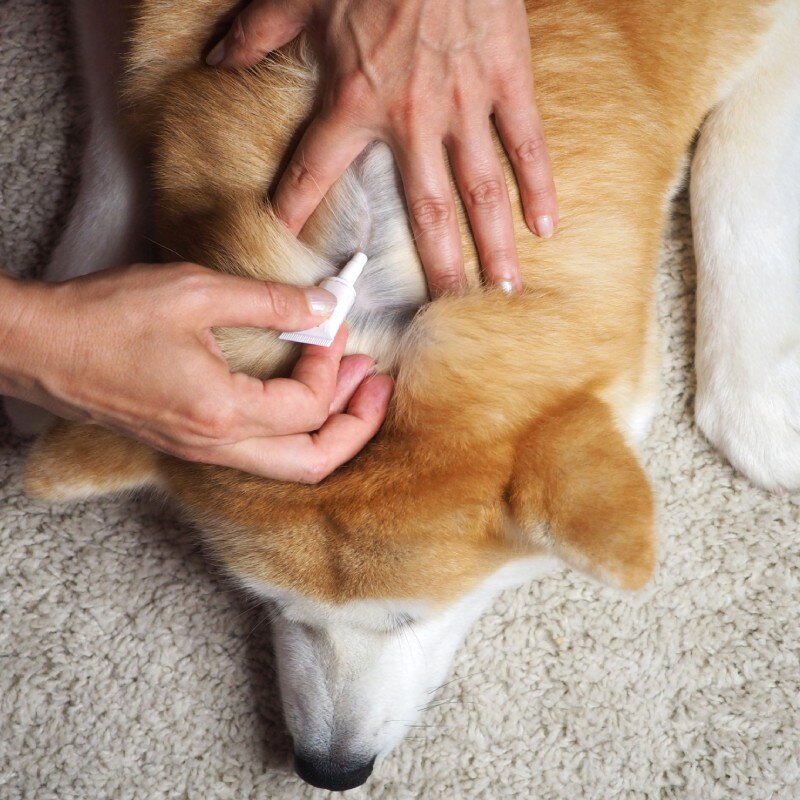
Common Internal Parasites Found in Dogs and Cats
For the well-being of your beloved pet, it's crucial to follow your veterinarian's recommendations for deworming medications and schedules. Regular deworming helps protect dogs and cats from the following internal parasites:
- Roundworms: These large intestinal worms are one of the most common infections in puppies and kittens. They can cause vomiting, diarrhea, a potbelly appearance, and stunted growth.
- Hookworms: These small, hook-shaped worms attach to the intestinal lining and feed on blood, potentially causing anemia in severe cases.
- Whipworms: These worms live in the cecum and colon and can cause bloody diarrhea, weight loss, and general unthriftiness (more common in dogs than cats).
- Tapeworms: These segmented flatworms are contracted from fleas or undercooked meat. They can cause weight loss and irritation around the anus.
- Heartworms: Transmitted by mosquitoes, these worms migrate to the heart and lungs, leading to coughing, lethargy, and potential heart failure if untreated (primarily affecting dogs but occasionally seen in cats).
- Giardia: This single-celled parasite causes diarrhea and can be transmitted through contaminated water or feces.
Effects of Intestinal Parasites on Pet’s Health
Intestinal parasites, such as roundworms, hookworms, and whipworms, pose a significant threat to your pet's well-being. These parasites derive sustenance by consuming your pet's blood, essential nutrients, and tissues, resulting in:
- Malnutrition and Impaired Growth: Particularly critical in young animals like puppies and kittens, this can hinder their development.
- Gastrointestinal Distress: A heavy parasite load can lead to intestinal blockages, vomiting, diarrhea, and abdominal discomfort.
- Anemia: Certain worms attach to the intestinal lining, causing inflammation and bleeding, which depletes vital nutrients and iron, potentially leading to anemia.
Regular deworming is crucial for public health, especially in households with children. Pets can shed worm eggs in their feces, contaminating the environment. Children, who often explore their surroundings through touch and oral exploration, are at a heightened risk of infection if pets are not consistently dewormed.

Signs and Symptoms of Intestinal Parasites in Dogs and Cats
While some symptoms can be caused by other conditions, if you notice any combination of these signs in your pet, it's a good idea to have your veterinarian test for the presence of intestinal parasites through fecal exams or other diagnostic methods. Here are common signs that may indicate your pet has intestinal parasites:
- Diarrhea
- Vomiting
- Weight loss
- Pot-bellied appearance
- Poor appetite
- Scooting/dragging rear end (more common in dogs)
- Visible worms in feces or around the anus
- Coughing (in case of heartworms)
- Lethargy
- Dull, unhealthy coat
- Pale gums (indicating anemia)
- Failure to grow properly (in puppies and kittens)
- Abdominal pain or discomfort
- Restlessness or irritability
- Bloating
- Constipation
- Skin irritation around the anus
- Dehydration
If you are concerned that your dog or cat may have intestinal parasites, please reach out to our team so we can do a thorough evaluation and recommend the appropriate treatment option.
Contact Us
Preventing Intestinal Parasites

Preventing Intestinal Parasites
Protecting your pets from the dangers of internal worms starts with basic preventive care. Promptly dispose of your pet's feces to remove any shed worm eggs from the environment and practice good hygiene. Discourage your pet from eating rodents, birds, or other potential parasite sources. Keep your dog and cat on year-round heartworm prevention medication, as these products also help control other types of worms. Have your veterinarian perform routine fecal exams and deworm your pet on the recommended schedule—this is especially crucial for puppies and kittens, who are more susceptible.

Reduce exposure risks by not allowing your pet to drink standing water that could be contaminated. Maintaining your pet on a quality diet and keeping their living area clean also promotes overall health to better withstand parasites. With these straightforward preventive measures, you can effectively protect your pet from the dangers of internal worms.
